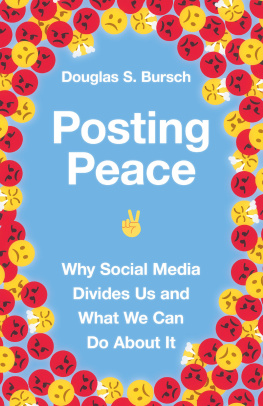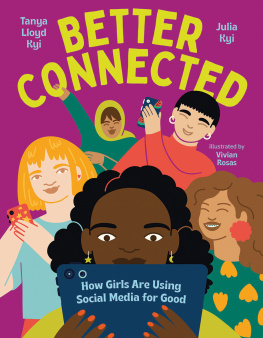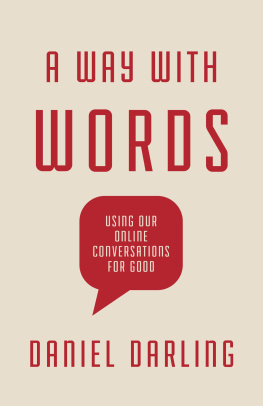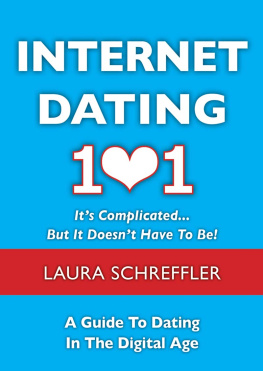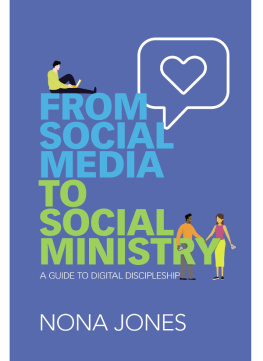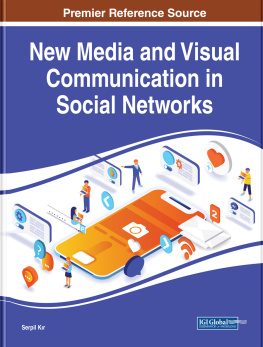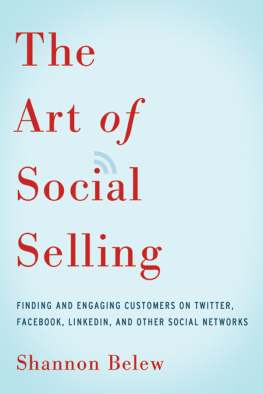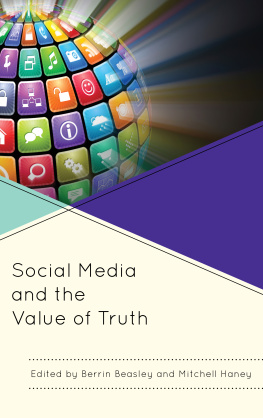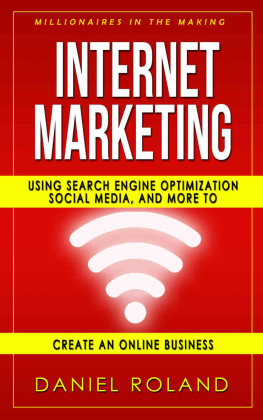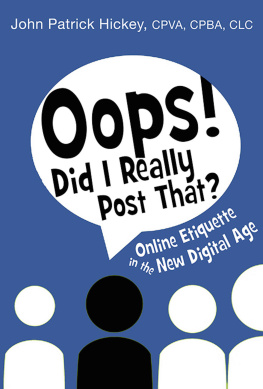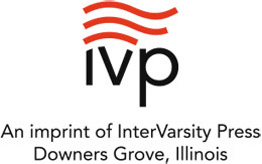Sommaire
Pagination de l'dition papier
Guide
Posting
Peace

Why Social Media
Divides Us and
What We Can
Do About It
By Douglas S. Bursch
InterVarsity Press
P.O. Box 1400, Downers Grove, IL 60515-1426
ivpress.com
2021 by Douglas S. Bursch
All rights reserved. No part of this book may be reproduced in any form without written permission from InterVarsity Press.
InterVarsity Press is the book-publishing division of InterVarsity Christian Fellowship/USA, a movement of students and faculty active on campus at hundreds of universities, colleges, and schools of nursing in the United States of America, and a member movement of the International Fellowship of Evangelical Students. For information about local and regional activities, visit intervarsity.org.
All Scripture quotations, unless otherwise indicated, are taken from The Holy Bible, New International Version, NIV. Copyright 1973, 1978, 1984, 2011 by Biblica, Inc. Used by permission of Zondervan.
All rights reserved worldwide. www.zondervan.com. The NIV and New International Version are trademarks registered in the United States Patent and Trademark Office by Biblica, Inc.
While any stories in this book are true, some names and identifying information may have been changed to protect the privacy of individuals.
The publisher cannot verify the accuracy or functionality of website URLs used in this book beyond the date of publication.
Cover design and image composite: David Fassett
Image: emojis: twemoji.twitter.com
ISBN 978-0-8308-4781-5 (digital)
ISBN 978-0-8308-4780-8 (print)
This digital document has been produced by Nord Compo.
For my Jennifer.
Bone of my bones, flesh of my flesh. Together we are one.
You are the embodiment of Gods love and grace.
I am forever yours.
Angry Online
I anxiously pause and read, then pause and read again, carefully trying to parse the verbiage, analyze the tone, determine the intent, decipher the meaning, and find a way forward through this ever-expanding social media battlefield. I grow tired of this recurring, sinking, alienating feeling, my thumbs hovering over the phone, my eyes scanning and rescanning the inflamed words on the screen. Although Im not looking for a fight, I face the familiar prospect that my next post, tweet, response, or lack of response will make someone angry.
Why are we so angry online? Why are we so divided? I can imagine the apostle Paul tweeting, If you bite and devour each other, watch out or you will be destroyed by each other (Gal 5:15). I can also imagine his words being disregarded or angerly refuted by most everyone. Why are we behaving in such a ridiculous manner with even the most mundane observations devolving into toxic absurdities? I can tweet the banal observation I ate too many tacos, and five responses later someone angrily accuses me of being a baby killer. If you dont see a connection between baby killing and taco consumption, youre correct. Unless youre interacting with these words and ideas on the internet. On the internet, everythings connected. This is the strange reality of our age; every idea becomes entangled through the emotionally chaotic, incessantly divisive world of social media. Our online existence is turning us into angry, dehumanizing, polarizing people.
Our response to a worldwide pandemic poignantly exemplified and exaggerated the most troubling aspects of our social media communication. While the world engaged in social distancing and at-home sheltering to stop the deadly spread of the coronavirus, the most divisive aspects of social media communication went viral. Angry partisan divisiveness and wild unfounded conspiracy theories spread rapidly through social media platforms. The World Health Organization (WHO) referred to this worldwide, massive spread of misinformation as an Infodemic where an overabundance of misinformation made trustworthy sources and reliable guidance hard to find when people most needed accurate information. Although their statement dealt with misinformation, they could not address the general attitudes of anger and fear that infused into so many social media discussions.
One social media analytics tracking company found that disgust and fear were the most prominent emotions expressed by social media users during the early days of the coronavirus outbreak. This disgust and fear exaggerated already volatile online environments as physically isolated people facing a collective traumatic experience increased their social media engagement on platforms that trended toward conflict in even the most peaceful of times. For many of us the dilemma was devastating. On one hand, we needed and craved community as the virus cut us off from many everyday human interactions. On the other hand, the online world we used to supplement our loss of in-person community became increasingly toxic, dehumanizing, and harmful to our emotional health.
United to Divide and Devour
Whether confronting a pandemic or tackling the realities of everyday existence, the internet is a wonderfully powerful, dangerous tool. Through online communication individuals unite and divide, relationships develop and implode, communities form and shatter. The internet increases our ability to connect with and to harm more people personally than ever. For every person we bless, others we offend. Although the internet brings us together, the online world also dehumanizes, detaches, divides, segments, and polarizes people. Were becoming angry, mean, and cliquish. People roam the online world looking for individuals they can fight or devour. Daily, we watch seemingly non-controversial posts or tweets spark contentious, bitter online battles. Earnest attempts to civilly address injustices quickly disintegrate into rancorous partisan extremism. The anger and toxicity feel so palpable, many of us dread expressing any possibly controversial opinions, fearing others will conscript us into ideological battles were not trying to fight. The polarization of social media communication increases in many individuals a profound sense of anxiety, alienation, and frustration. The internet connects more humans and more people groups than any technology in history. Yet, as we come together, we tear each other apart.
We sense and even lament the foreboding growing tensions and divisions rising up in our social media age, yet many of us are fatalistic when contemplating solutions. While some people pessimistically accept the hostility of social media as an inevitable reality of the medium, I want to confront that notion. I might be foolish in my attempt, but I want to challenge the spirit of our age to seriously call into question the fundamental ways we interact with each other online. Im tired of the fighting. Im tired of being afraid of the fighting. I no longer desire to engage in fruitless heated discussions and meaningless contentious debates that dont have a redemptive or transformative purpose. I want my best energy directed toward Christ-centered, truth-advancing, life-affirming, grace-filled, reconciling communication. I want to be a Christ-motivated peacemaker.

